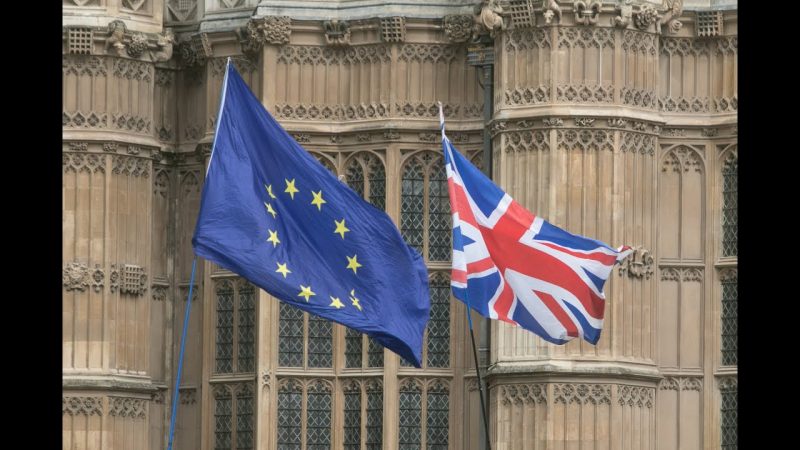The UK seems well behind the curve on green industrial policy and is increasingly left standing watching on the sidelines.

Tony Burke is the President of the Confederation of Shipbuilding & Engineering Unions and Co Chair of the Campaign For Trade Union Freedom.
The European Union is reportedly in talks on an outline agreement with the USA, following Europe’s concern about Joe Biden’s Inflation Reduction Act signed into US law last year.
The EU Trade Commissioner Valdis Dombrovskis said the USA has “indicated openness to find ways how to treat us as a free trade agreement-equivalent partner.” Not quite a free trade free trade partner – retorted US treasury secretary Janet Yellan in the New York Times: “I think the word ‘free trade’ was meant to mean reliable friends and partners with whom we can feel we have secure supply chains.”
Any deal revolves around President Biden’s plan to massively increase spending and investment in infrastructure, climate change and green manufacturing, including the manufacture of electric vehicles and batteries via his $500billion Inflation Reduction Act which is “aimed squarely at building a better America and delivering on President Biden’s vision to make sure the United States—powered by American workers—remains the global leader in clean energy technology, manufacturing, and innovation.” The Act is also aimed at reducing the USA’s dependence on China for supplies of minerals needed for the USA green energy transition.
The Act angered the EU and some Asian countries and the UK who saw it as excluding their automotive and manufacturing industries, via tariffs applied to countries which do not have a trade deal with the USA. The Biden act encourages domestic production of critical minerals and other battery components. By next year, in order to qualify for the full consumer tax credit, at least half the value of the critical minerals in a car battery must be extracted or processed in the USA or a country with which the they have a free-trade agreement. The EU had threatened to retaliate if member countries were effectively locked out of the US electric vehicles and supply chain market.
US Treasury Secretary Janet Yellen said that the administration has been looking at ‘a critical minerals deal’ as a way to get the EU into compliance with the final rules of the new law, which is due around the end of this month. Yellen said that such deals were likely not to need the approval of the US Congress.
US critics of by-passing Congress see US trade policy as having less transparency or no public input. But Roy Houseman, legislative director for the United Steelworkers union which represents tens of thousands of workers in mining, metals and manufacturing suggested that Europe and the USA could pool resources. He told American Prospect magazine: “Vanadium is important for steelmaking and EV vehicles of the future, and we should try and encourage the long-term viability of these existing facilities first, before resources are spent through international trade discussions. Tungsten is one where we don’t have as much domestic capacity, but the Europeans have some more.”
So how will this affect the UK? Automotive sector expert David Bailey, Professor of Business Economics at Birmingham Business School commented: “This looks like a potential USA – EU deal. It will be interesting to see if this happens and if so whether it extends to the broader EU Single Market and Customs Area. The UK has, of course, left both – ironically in order to do trade deals with the likes of the US. The USA is more interested in working with big blocs like the EU. Where this all leaves the UK is the key question. The UK meanwhile seems well behind the curve on green industrial policy and is increasingly left standing watching on the sidelines.”
Kemi Badenoch, the UK’s Secretary of State for Business and Trade, flew to the US last year to argue the case for the UK automotive sector but came away empty handed, probably because of the mistrust of the UK by the Biden administration, notably over the Northern Ireland Protocol. She recently told a Politico conference that Biden’s plan was ‘protectionist’ and that: “It’s not just the EU doing stuff and we’re not in the room. Along with the UK Switzerland, South Korea and Japan we’re ‘worried’.
With possible easing of tensions with the USA over the Northern Ireland Protocol via the Windsor Framework agreement the UK will be looking to be part of any outline deal that the EU sign. But we could still be ‘at the back of the queue’ as Barak Obama warned about being outside of the EU. Again, so much for Global Britain.
To reach hundreds of thousands of new readers we need to grow our donor base substantially.
That's why in 2024, we are seeking to generate 150 additional regular donors to support Left Foot Forward's work.
We still need another 117 people to donate to hit the target. You can help. Donate today.



